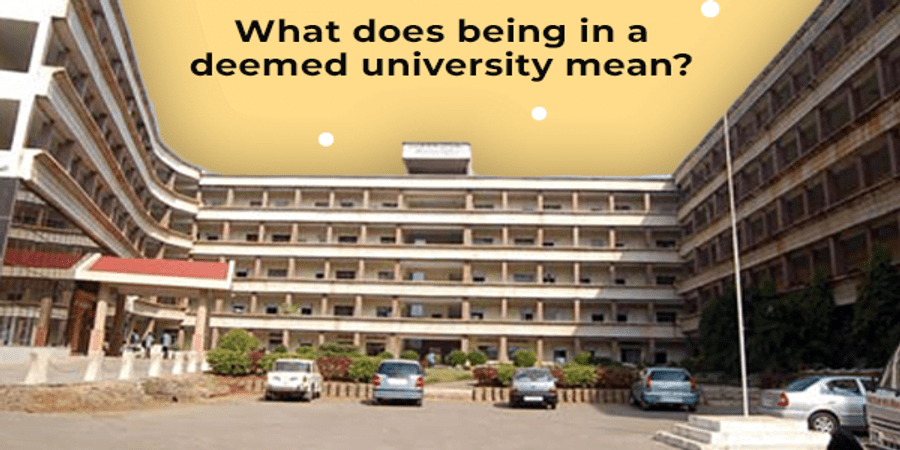Last Updated on September 5, 2024
The Deemed University stands for deemed-to-be-university, which is an accreditation provided by the Department of Higher Education. On the suggestion of the UGC, this status is granted to India’s higher educational establishments under the Ministry of Human Resource Development
A well-rounded education, better prospects, skills, and a variety of career opportunities are all available to students who want to enrol in a degree at one of these colleges. For making an informed decision, follow the tips and tricks provided by the best education consultants in Delhi and Guwahati. The Delhi-based consultants provide detailed fee structures, scholarship schemes, and a list of the best universities to choose from.
What motivated the establishment of deemed universities in India?
After Independence, there was a pressing need to improve the accessibility of higher education and equip individuals with the skills and information necessary to find employment and support themselves. Under the British, our country had been continually oppressed and conflict-ridden, so increasing our human capital was the only approach to enhance the country’s economic position. As a result, the government founded a number of colleges for higher learning, and over time, the resources and labour invested in them helped them reach worldwide standards. But despite the enormous and rising demand, the government’s supply of colleges trailed short.

Private organizations had also started to establish their own educational institutions at this time (particularly after privatization policies had been put in place), and some of them had even started to meet the established requirements for higher education. The provision for the status of Deemed to be University was developed in order to encourage more such institutions and to give them government recognition and privileges.

The Significance of deemed universities in the Indian university environment
- At the undergraduate, postgraduate, and research degree levels, guarantees excellence and innovation in higher education.
- Guides learners to interact in their areas of expertise and translate into higher education in a variety of subjects.
- Provide graduates with better instruction and organize internationally recognized research programs.
There are 5 types of universities as recognized by the University Grants Commission of India namely Central universities, private universities, state universities, autonomous universities, and deemed universities. On the suggestion of the UGC, deemed universities are granted authority and can make autonomous decisions about curricula, pedagogy, enrollment, and fees. There are a few Deemed-to-be universities that can confer degrees on their own.
Features of deemed universities
- Deemed universities are recognized under section 3 of the UGC Act 1956 by the University Grants Commission.
- Deemed university is self-funded and the university is permitted to design its curriculum and fees.
- Students benefit from cutting-edge labs, sophisticated courses, the top instructors, and facilities at deemed universities.
The UGC monitors and audits the deemed university every year. It is done to ensure that it is keeping its educational standards and performing its tasks appropriately. The designated university must complete various tasks to perform well in this inspection. Deemed universities have to look after the following responsibilities:
- Guaranteeing that the teacher-to-student ratio does not go below 1:20.
- Seeking to make all of its teachers attend annual training sessions in addition to learning better and more innovative teaching approaches.
- Ensure that assessments encourage and evaluate the accuracy of conceptual knowledge and application.
- Encouragement of community interactions among students while they are enrolled at the university
- Instilling in students the culture of entrepreneurship and rational reasoning.

How an institution becomes eligible to be declared as a deemed university?
- The institution must have been in existence for at least 20 years.
- Each academic year, there must be at least 2,000 students and 100 professors and teachers.
- At the time of application and for the previous two years, you must be a well-known and well-ranked university.
- Has demonstrated university attributes across a range of curricula and has scientific studies yield.
- Have at least 5 different postgraduate units with active research efforts over the past three years.
- The university must do research, disseminate scholarly works, and provide PhD and post-doctoral research programs.
Summarized upshots!
Their program is incredibly advantageous for a student’s future since it focuses on the business market and macroeconomic conditions. Deemed institutions equip students with an academic standard as well as the ability to engage in a variety of research endeavours. When choosing amongst regarded colleges, it is vital to conduct your study and obtain guidance and encouragement.
To pursue their aspirations of enrolling in the top universities and institutions around the globe, many students turn to Admissify, the top education counselor in Delhi. We also provide practice tests, IELTS and GMAT preparation, and mock exams. Please utilize our website to contact us if you require any further information.
Gaurav Kandari is a seasoned study abroad consultant with over 5 years of experience, specializing in guiding students to the UK, USA, Canada, and Australia. An avid traveler, he draws on his global adventures to enrich his consulting, providing invaluable insights to aspiring scholars.




